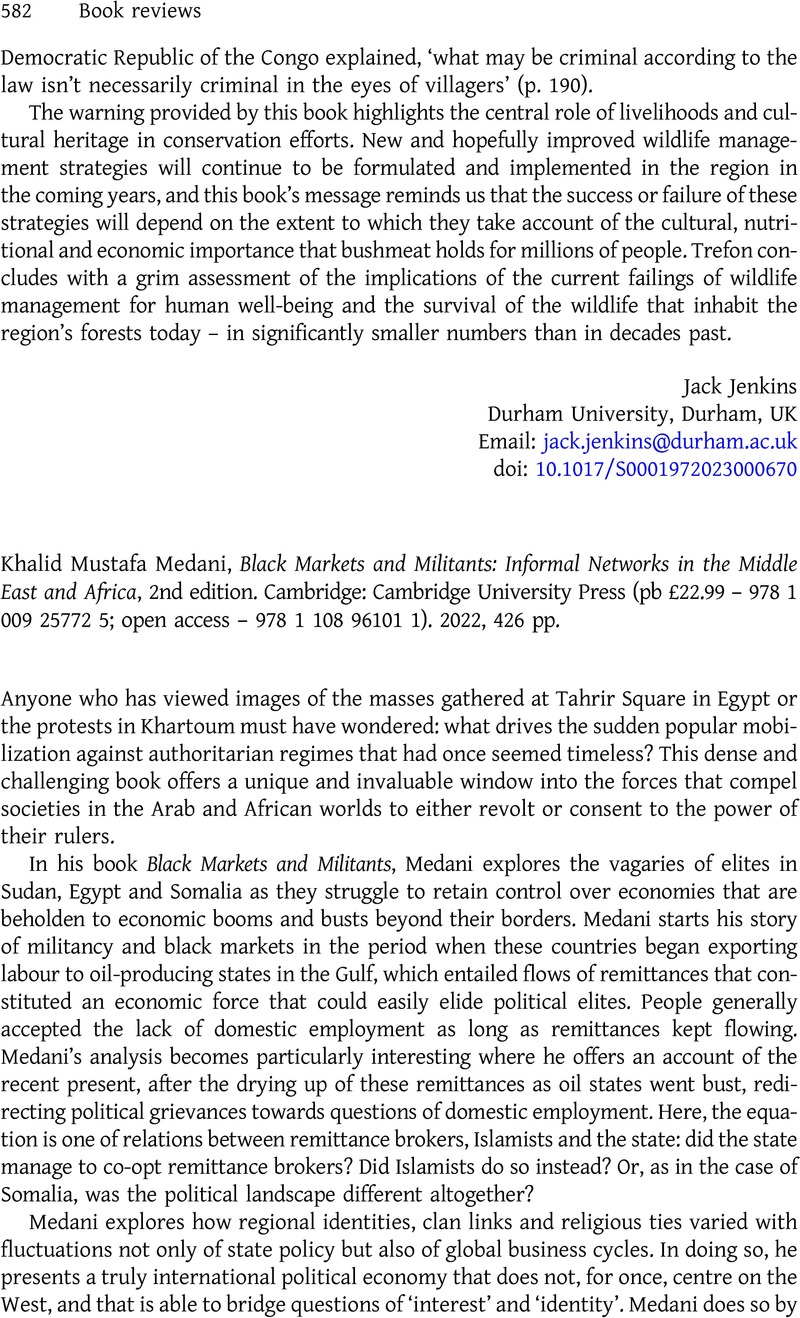No CrossRef data available.
Published online by Cambridge University Press: 11 October 2023

1 Medani, K. M. and N. Lori (2022) ‘Black markets in Sudan: an interview with Khalid Mustafa Medani’, Middle Eastern Report 305. Available at <https://merip.org/2023/01/black-markets-in-sudan-an-interview-with-khalid-mustafa-medani/>.